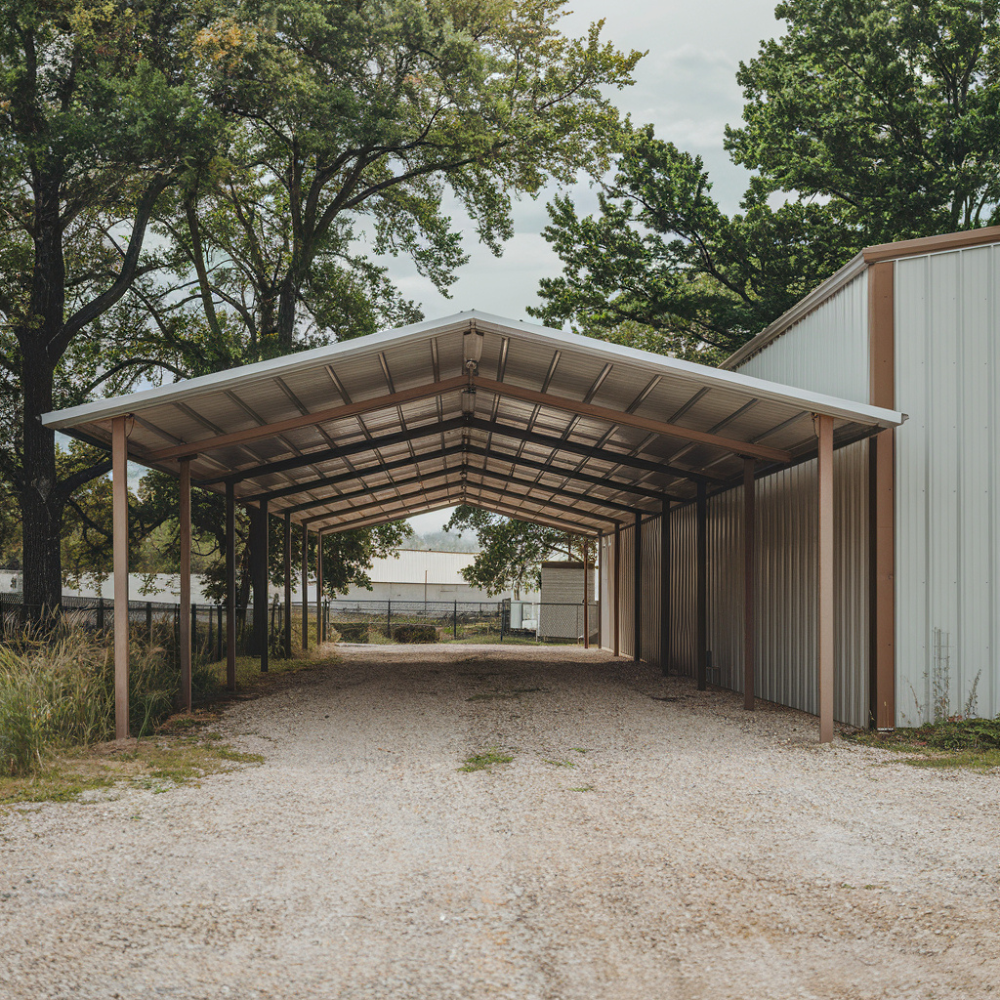Introduction
Engineering stamp requirements in Tennessee for metal building projects, such as carports, depend on several factors, including the project’s nature, size, and jurisdiction. Compliance ensures safety, durability, and adherence to state and local regulations. This updated guide provides an in-depth look at when an engineer’s stamp is required and how to navigate the process effectively.
Table of Contents
- Overview of Engineering Stamp Requirements
- Public Works Projects
- Private and Residential Projects
- Local Jurisdiction Requirements
- Sealing and Stamping Requirements
- Practical Considerations
- Key Recommendations
1. Overview of Engineering Stamp Requirements
In Tennessee, engineering stamps are required based on the type of project and governing regulations. While some projects mandate an engineer’s involvement due to safety or legal standards, others may depend on local ordinances or project-specific characteristics. Understanding the distinction is key to compliance.



2. Public Works Projects
According to Tennessee Code Annotated (TCA) § 62-2-107, public works projects require plans, specifications, and estimates prepared by Tennessee-registered design professionals when:
- Total expenditure exceeds $50,000.
- The project involves alterations to structural, mechanical, or electrical systems.
This ensures that public safety and infrastructure standards are met in government-funded developments.
3. Private and Residential Projects
For private and residential projects, including structures like carports:
- Local building codes and regulations determine whether an engineering stamp is needed.
- Local officials assess whether plans:
- Exceed specific size or cost thresholds.
- Do not conform to standard building codes.
- Are intended for commercial use.
In many cases, smaller residential projects like simple carports may not require a stamp, but local building authorities have the discretion to impose this requirement.
4. Local Jurisdiction Requirements
Tennessee municipalities are classified as either exempt or non-exempt regarding local code adoption:
- Exempt Jurisdictions: Have approved code enforcement departments with certified inspectors, allowing them to set specific requirements for structures like carports.
- Non-Exempt Jurisdictions: Follow state-mandated codes without additional local modifications.
It is essential to consult the local building department to determine if your specific project requires an engineering stamp.
5. Sealing and Stamping Requirements
The Tennessee Board of Architectural and Engineering Examiners mandates the following for stamped plans:
- All new commercial or industrial buildings, regardless of size or occupancy, must have stamped drawings.
- Residential projects, excluding one- and two-family dwellings, require stamped plans by a licensed architect or engineer.
This ensures professional oversight for projects with significant safety implications or complex designs. Engineering Firms like Lightning Engineering can also discuss your project requirements.
6. Practical Considerations
Even when not legally required, obtaining an engineering stamp can provide several benefits:
- Code Compliance: Stamped plans demonstrate adherence to all relevant building codes and standards.
- Safety Assurance: Professional review ensures the structural integrity and durability of the building.
- Insurance Requirements: Some insurers may demand stamped plans as a condition for coverage.
7. Key Recommendations
To ensure compliance and safety for your metal building project, consider the following:
- Consult Local Authorities: Engage with your local building department to confirm whether a stamp is required for your project.
- Engage Licensed Professionals: If there is uncertainty, it is advisable to have plans reviewed and stamped by a Tennessee-licensed engineer.
- Factor in Practical Benefits: Even if not required, a stamped plan can save time and money in the long run by avoiding potential compliance or safety issues.
Conclusion
Engineering stamp requirements for metal buildings in Tennessee vary depending on project specifics and local regulations. Whether for public works, private developments, or residential structures, consulting with local authorities and engaging licensed professionals is crucial. By adhering to these guidelines, you can ensure that your project complies with all necessary legal and safety standards.
Looking for more information on if your project requires an engineer? Contact Lightning Engineering for more information.

